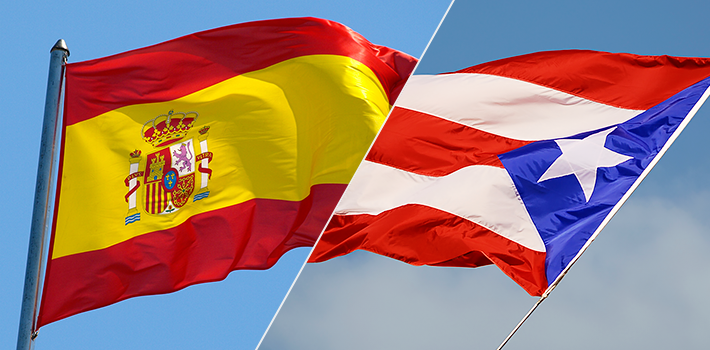Puerto Rico has only two feasible paths for a non-territorial status: statehood or independence. However, beyond these realistic non-territorial alternatives, there are other theoretical avenues to consider. One such possibility is reunification with Spain.
A very small organization in Puerto Rico advocates for this concept. Their intention is not to return to the colonial status Puerto Rico endured for four centuries, but rather to become an autonomous community of Spain — akin to being a state within the United States. Spain is comprised of 17 autonomous communities, alongside 50 provinces, which include Galicia, Andalusia, and Catalonia, the latter of which has its own independence movement. Each region has distinct levels of autonomy and unique historical and cultural identities. Nevertheless, none possesses separate sovereignty. When Catalonia proclaimed independence, Spain reacted by limiting some of the region’s autonomy.
One existing community, the Canary Islands, is also an island region, like Puerto Rico, situated away from the Spanish mainland. Analyzing the Canaries may offer insights into how reunification could unfold for Puerto Rico.
If Puerto Rico were to reintegrate with Spain as an autonomous community similar to the Canary Islands, the euro would supersede the dollar as its currency, and Puerto Rico would join the European Union. These alterations would be significant. Moreover, Spain’s legal framework differs considerably from that of the U.S.
In several respects, however, the transition might be more seamless. Both Spain and Puerto Rico emphasize the importance of English and Spanish language instruction in schools, promoting bilingual education. The average annual income in the Canary Islands stands as the second lowest in Spain, around $25,000, while Puerto Rico’s is approximately $24,000 per year. Thus, reunification with Spain might not drastically alter the standard of living.
Is there a desire for reunification in Puerto Rico?
The short answer is no. Reunification with Spain has never appeared on the ballot for any status referendum, nor is it part of any predominant political party’s agenda in Puerto Rico.
Evidence of a supporting movement is minimal. Anette Falcón represented this viewpoint before the UN Special Committee on Decolonization, stating, “We wish to return to Spain as it is a democratic and modern nation dedicated to our Western civilization. Long live Spain, our homeland, and long live Spanish Puerto Rico. Olé!” There is a faction that endorses this view, which maintains a Facebook page, and according to Impacto, has 36 members. Carlos Sanchez Silva commented on Quora, indicating that this supposed movement is primarily a protest against the United States’ failure to admit Puerto Rico as a state. Other participants in the discussion posited that Florida may serve as the movement’s focal point.
It seems reasonable to conclude that this perspective lacks popularity in Puerto Rico.
Does Spain desire reunification?
The answer here is also no. Spain seems more focused on reclaiming Gibraltar, which it ceded to Great Britain in 1713. Although Gibraltar is geographically part of Spain, it is considered British territory. The two nations have experienced numerous disputes concerning Gibraltar, with Spain asserting that the UK is unlawfully occupying it as a colony.
Conversely, Spain has not initiated any discussions regarding Puerto Rico since it transferred ownership to the United States in 1898.
Does the United States seek reunification between Spain and Puerto Rico?
For reunification to occur, not only Puerto Rico and Spain but also the United States, which governs Puerto Rico, would need to ratify a reunification treaty. As with Spain, there appears to be no inclination from the United States to negotiate at this time.
Although Spain and the United States maintain a cordial relationship and might theoretically find a solution if Puerto Rico expressed a desire for reunification with Spain, there seem to be no tangible advantages for the United States in reinstating Puerto Rico under Spanish control. In fact, the Monroe Doctrine, which regularly resurfaces in political discussions, advocates for European countries to remain uninvolved in the Americas.
The likelihood of the United States endorsing this proposal appears dim.
The notion of Puerto Rico returning to Spain primarily reflects a collective frustration over enduring a colonial relationship with the United States for more than a century.
